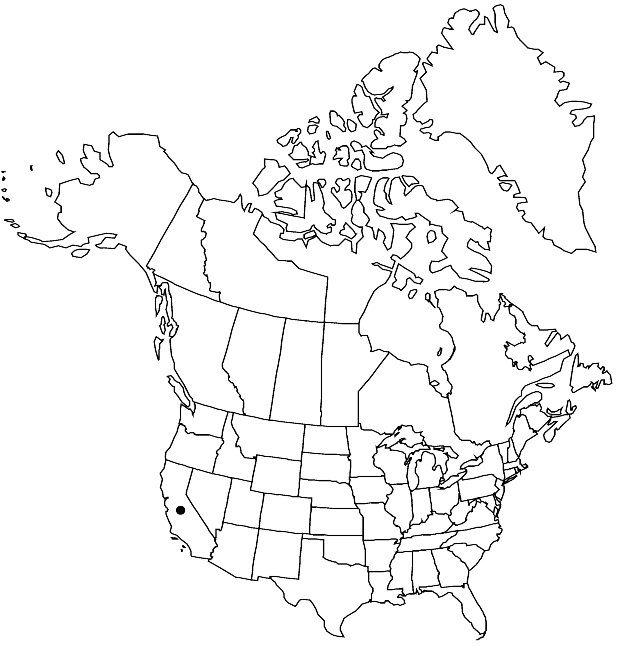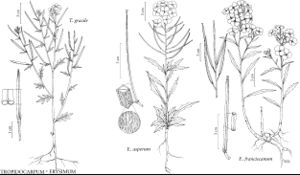Tropidocarpum gracile
Icon. Pl. 1: plate 43. 1836.
Plants sparsely to densely hirsute basally, trichomes simple, to 1.5 mm, these mixed with fewer, forked, stalked ones, sparsely pubescent distally. Stems usually ascending, prostrate, or decumbent, rarely erect, (0.4–)1–4.5(–6) dm. Basal leaves: petiole (0.3–)1–2.5(–3.5) cm; blade (1.5–)2.5–10(–15) cm, margins pinnatifid to pinnatisect; lobes 3–8(–12) on each side, ovate, oblong, or linear, (0.1–)0.6–2(–3) cm × (0.5–)1–3(–6) mm, shorter than terminal, margins entire, dentate, or pinnatifid. Cauline leaves: (proximal) petiolate or (distal and bracts) sessile; blade similar to basal, smaller and less divided distally. Fruiting pedicels erect to ascending, straight, (4–)6–17(–35) mm, pubescent. Flowers: sepals 2.5–4 × 0.7–1.5 mm, glabrous or pubescent; petals obovate to spatulate, 3–6 × 1.5–4 mm, not clawed; filaments 2.5–4 mm; anthers 0.5–0.6 mm. Fruits narrowly linear, (25–)30–60(–70) × 1.5–2(–3) mm, length 13–46 times width; valves 2, thin-leathery, smooth, usually pubescent or puberulent, rarely glabrescent, trichomes simple, retrorse; septum incomplete or absent; ovules 30–70 per ovary; style (0.3–)0.8–2.5(–4) mm. Seeds dark brown, 1.2–1.6 × 0.7–1 mm. 2n = 16.
Phenology: Flowering Mar–May.
Habitat: Roadsides, fields, hillsides, grassy pastures, sandy washes, sage scrub, chaparral, ravines, beaches, gravel flats
Elevation: 0-1200 m
Distribution

Calif., Mexico (Baja California).
Discussion
Tropidocarpum gracile is known from central and coastal to southernmost California.
Selected References
None.
